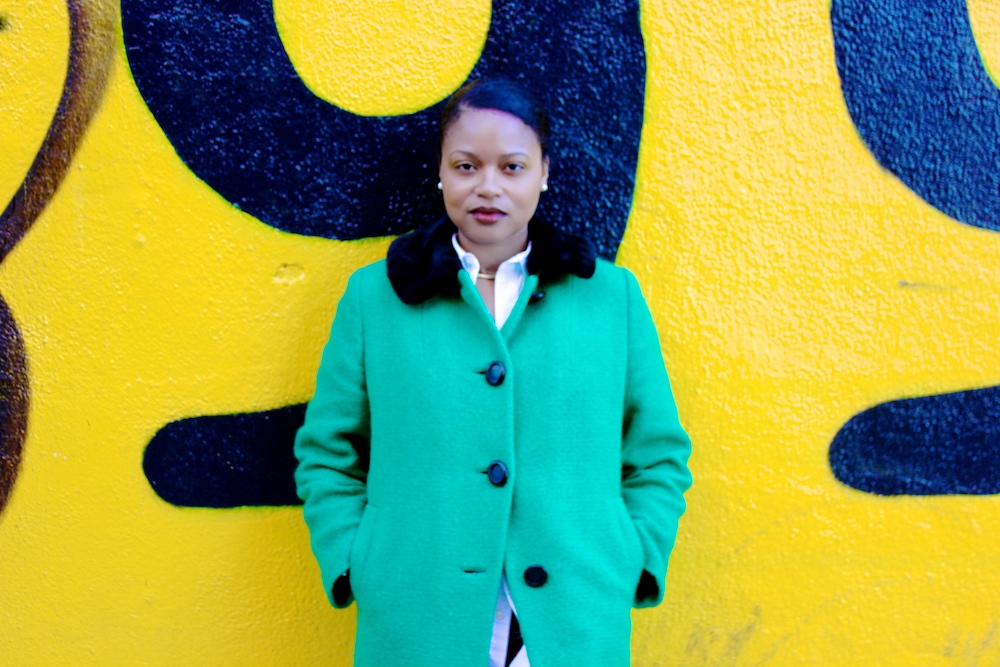Chaédria LaBouvier is the Guggenheim’s first Black curator, first Black woman to curate a Guggenheim exhibition, first Black author of a Guggenheim catalog, first curator of Cuban descent and, at age 33, the youngest independent curator to organize an exhibition in the lauded fine-art mecca. Her blockbuster 2019 exhibition for the Guggenheim, “Defacement: The Untold Story,” was centered around a little-known Jean-Michel Basquiat painting, The Death of Michael Stewart (1983), a deeply personal artwork about the death of a New York artist at the hands of New York Transit Police. But these achievements are not why she recently made headlines. LaBouvier catalyzed the Change the Museum movement by publicly calling out the museum for the racism she experienced while working there as a guest curator.
I spoke with LaBouvier over the phone to ask some questions about the big picture, developed by racial equity consultant Dr. Charles H.F. Davis III, that were asked of staff at the Fowler Museum where I am Curator of Public Programs.
BIANCA COLLINS: Why should museums exist?
Chaédria LaBouvier: A society having a literal place of memory is deeply important. I think that everyone right now is asking that question, “Why should museums exist?” To allow people to experience history as the living, breathing thing that it is. The idea of what a museum does is deeply important to society. If it can – or will – exist as a museum 100 years from now. I think everyone is openly or privately asking that question.
Who should museums be for?
Without a question—the public
If not for the public right now, who are museums currently serving?
Right now, I don’t think they’re serving anyone.
Is that because of erasure? You talk a lot about how erasure is such an issue in museums because it doesn’t tell a complete history.
I think when you don’t tell a complete truth, no one wins. We’re all more ignorant and spiritually poor for that. There’s been a lot publicly said about how people are treated in museums as workers, and the public is distrustful of museums at the moment. A lot of leaderships at museums have proven themselves to be very tone-deaf, or unable to really respond to the furor and the intensity of this moment. I don’t know who this iteration of museums is serving right now.
For what should museums be known?
I think they should be known as places where a society and a people can explicitly reckon with themselves. A museum should be a place that you cannot hide from whence you came, in all its glory and all its despair.
To whom should museums be answerable?
The public. And its workers. Especially, the most vulnerable amongst its workers.
Black pride and Black joy are being named as valid and integral approaches to resistance. What you’ve achieved by speaking up against all of these systems of oppression—do you believe it falls into the category of Black pride as resistance?
Speaking out also encourages you to look back to yourself. You have to be able to ask yourself, “Can I be in this moment and stand on the right side of history, or not?” This idea that if you’re Black, you’re not complicit, I find an interesting one in the museum to sit with because some of the most violent interactions I’ve had have been at the hands of Black people and other people of color—and that is not uncommon to experience that. It’s also worth interrogating—like, where do you fit into this power scheme? Because museums are a very particular power scheme. When people [within museum power systems] are now critiquing of museums, I think it’s important to remember: at one point, you wanted to be a product of this system. You wanted to be a product and act like them. It doesn’t mean that anyone deserves less, but we have to talk about that. Just jumping from lack of interrogation to “Black joy, Black resilience”—there are a lot of people who received a lot of abundance in opportunities by behaving in the mannerisms of the violence that they’ve received or been taught to enact.
What’s next for you? What do you want to achieve next with your work?
I hope whatever I do will be thoughtful. Whatever is next, I plan to continue my art career and go back to my career in television. I hope that I’m really blessed and lucky and privileged to create something like I created with “Defacement,” which is something that touches people, and speaks to a truth, and is a conduit to explore really necessary and meaningful emotions or events. And, to tell really amazing stories.


